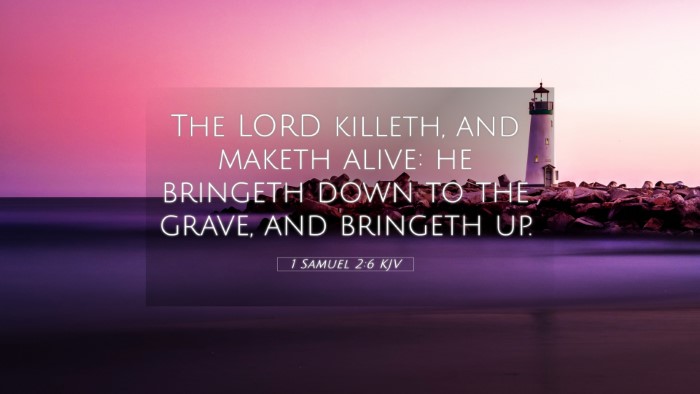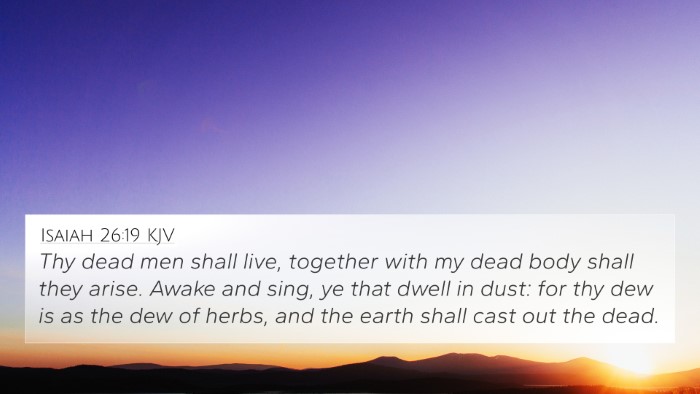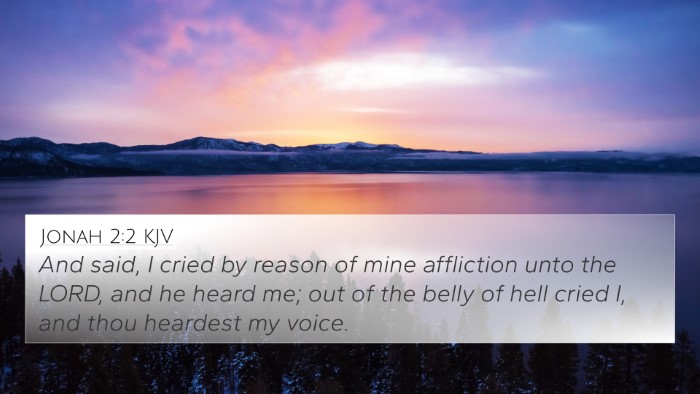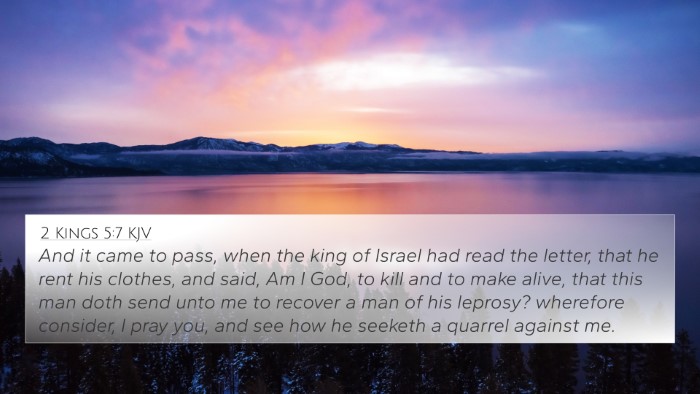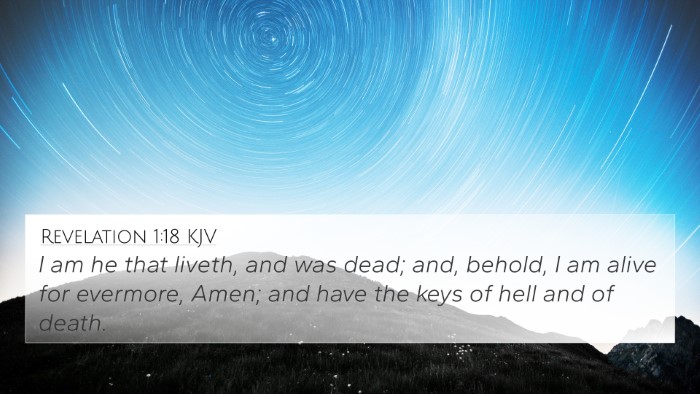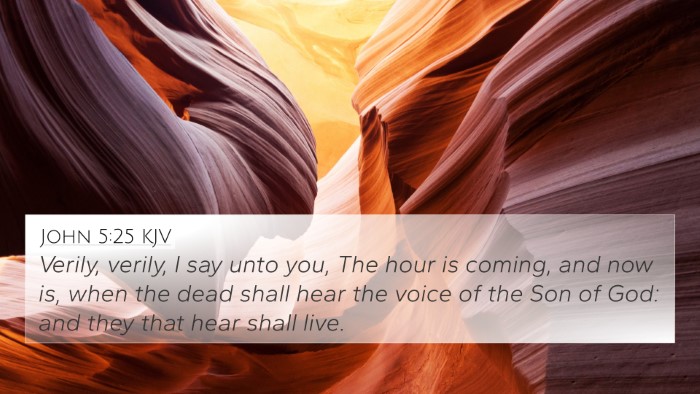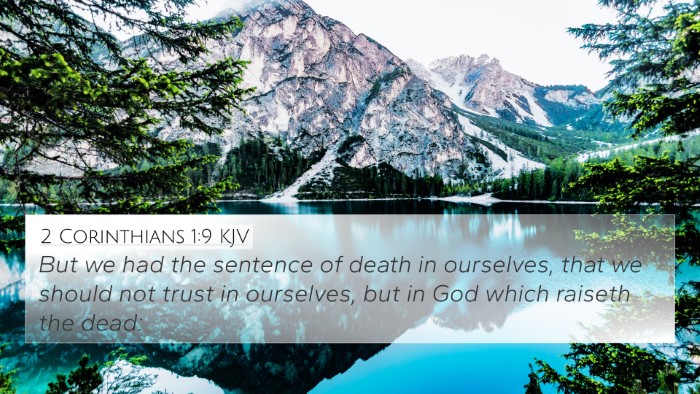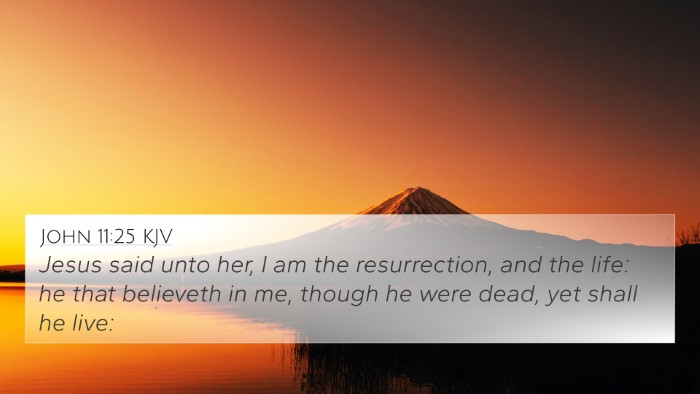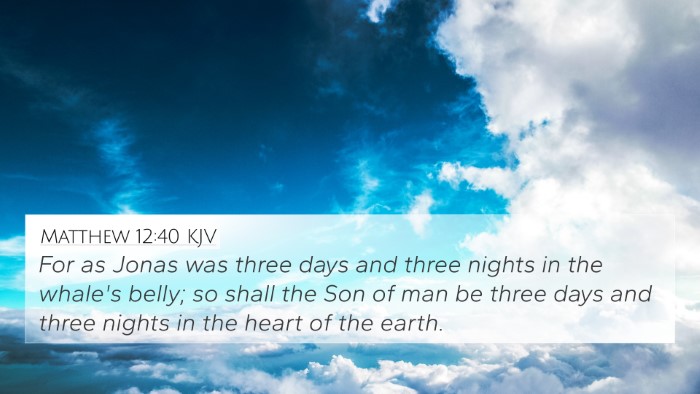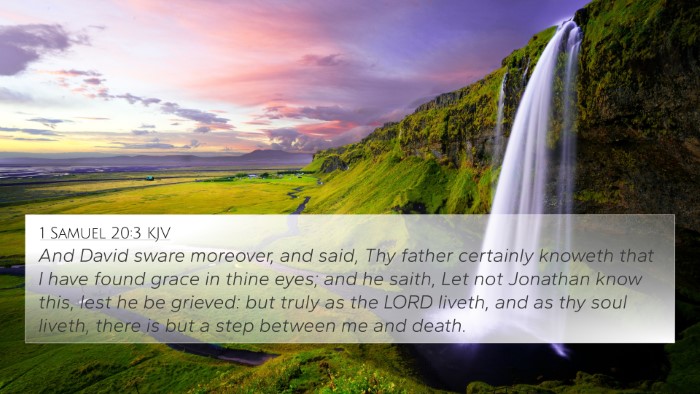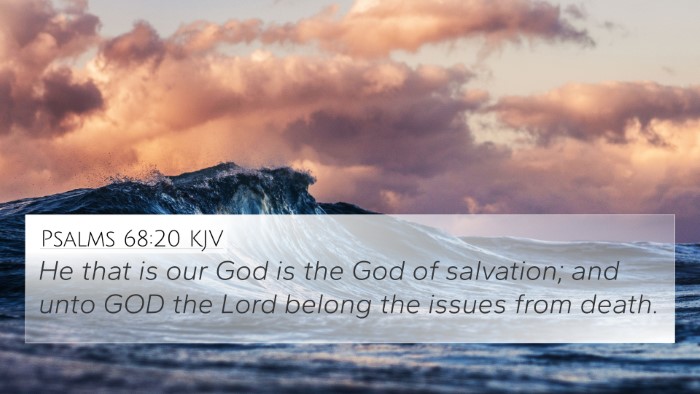1 Samuel 2:6 - Meaning and Insights
Bible Verse: 1 Samuel 2:6 - "The LORD killeth, and maketh alive: he bringeth down to the grave, and bringeth up."
This verse serves as a powerful proclamation about God’s sovereignty over life and death. It invites us to reflect on the nature of God's authority and intervention in the human condition. Here are some key insights derived from established public domain commentaries:
Insights from Commentaries
Matthew Henry's Commentary
Matthew Henry emphasizes the duality of God’s power—His ability to both kill and bring to life. He interprets this as a reminder that all life originates from God, who controls the destiny of every soul.
Albert Barnes' Notes
Albert Barnes points to the implication of divine judgments, suggesting that God's actions in life and death relate to His justice and mercy. The verse illustrates not just physical death but the broader spiritual reality that God can uplift or cast down according to His perfect will.
Adam Clarke’s Commentary
Adam Clarke interprets this statement as a profound acknowledgment of God's sovereignty in the human experience. He notes that not only does this verse capture the grave nature of life and death, but it also reassures believers that God’s ultimate purpose prevails beyond our understanding.
Cross-References and Thematic Connections
This verse resonates deeply with several other Biblical passages, illustrating the comprehensive nature of divine authority:
- Deuteronomy 32:39: "See now that I, even I, am he, and there is no god with me: I kill, and I make alive; I wound, and I heal." - This verse parallels the themes of life and death.
- Job 1:21: "Naked came I out of my mother's womb, and naked shall I return thither: the LORD gave, and the LORD hath taken away; blessed be the name of the LORD." - A powerful reflection on God’s control over life's beginnings and ends.
- Psalms 68:20: "He that is our God is the God of salvation; and unto God the Lord belong the issues from death." - Emphasizes God’s authority over salvation and death.
- Romans 14:9: "For to this end Christ both died, and rose, and revived, that he might be Lord both of the dead and living." - Connects the concept of resurrection and Christ’s lordship over life and death.
- John 11:25: "Jesus said unto her, I am the resurrection, and the life: he that believeth in me, though he were dead, yet shall he live." - Jesus’s declaration reinforces the message of life following death.
- Luke 20:38: "For he is not a God of the dead, but of the living: for all live unto him." - Highlights God's relationship with the living.
- Philippians 1:21: "For to me to live is Christ, and to die is gain." - Connects to the transformative nature of life through Christ.
- Revelation 1:18: "I am he that liveth, and was dead; and, behold, I am alive for evermore, Amen; and have the keys of hell and of death." - Affirms Christ’s victory over death.
Theological Reflection
1 Samuel 2:6 encapsulates a fundamental theme in theology—the sovereignty of God. Believers are called to acknowledge God's power, which extends into the deepest aspects of human existence. Life, death, and resurrection are interconnected through divine will and purpose. This understanding can lead to a more profound trust in God, particularly in times of uncertainty or despair.
Practical Application
Reflecting on 1 Samuel 2:6 can prompt us to:
- Recognize God’s Authority: We are reminded to submit to God's plans and trust in His sovereignty over our lives.
- Practice Faith in Trials: Understanding that God holds the power over life and death can offer comfort during difficult times.
- Share the Gospel: The truth of Christ's resurrection is central to Christian faith. This verse encourages believers to proclaim the hope found in Jesus.
Cross-Referencing Biblical Texts
Exploring this verse can also enrich a broader study of Scripture, providing a framework for understanding close thematic connections within the Bible. Here’s how:
- Tools for Bible Cross-Referencing: Utilize a Bible concordance or cross-reference guide to discover additional verses that bear thematic similarities.
- Cross-Reference Bible Study: Engage in practices that promote inter-Biblical dialogue, deepening one’s understanding of God’s redemptive plan.
- Bible Reference Resources: Leverage comprehensive Bible cross-reference materials for more extensive studies on themes related to life and death.
Conclusion
1 Samuel 2:6 stands as a crucial reminder of God’s omnipotence. It calls us to reflect on His authority and the intricate connections within His Word. By acknowledging these truths and engaging in comparative Bible verse analysis, believers can cultivate a deeper appreciation for God's overarching narrative in Scripture.

